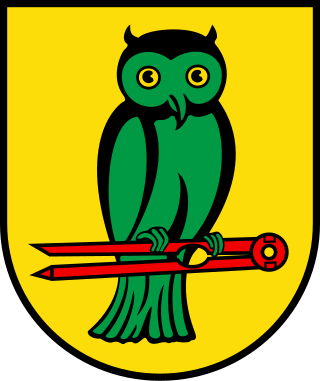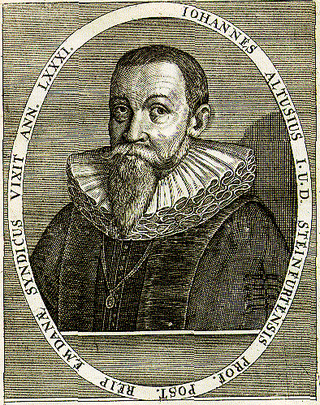
The Palatinate, or the Rhenish Palatinate (Rheinpfalz), is a historical region of Germany. Prior to World War II, it was also referred to as Rhenish Bavaria; as a state of the Holy Roman Empire, it was known as the Lower Palatinate (Unterpfalz), which designated only the western part of the Electorate of the Palatinate, as opposed to the Upper Palatinate (Oberpfalz). It occupies roughly the southernmost quarter of the German federal state of Rhineland-Palatinate (Rheinland-Pfalz), covering an area of 2,105 square miles (5,450 km2) with about 1.4 million inhabitants. Its residents are known as Palatines (Pfälzer).
The German minority population in Russia, Ukraine, and the Soviet Union stemmed from several sources and arrived in several waves. Since the second half of the 19th century, as a consequence of the Russification policies and compulsory military service in the Russian Empire, large groups of Germans from Russia emigrated to the Americas, where they founded many towns. In 1914, an estimate put the remaining number of ethnic Germans living in the Russian Empire at 2,416,290. While Stalin held power, ethnic German families were deported to gulag concentration camps located in Siberia and other parts of Central Asia, leading to the genocide of Germans from Russia. In 1989, the Soviet Union declared to have an ethnic German population of roughly 2 million. By 2002, following the collapse of the Soviet Union in 1991, many ethnic Germans had emigrated and the population fell by half to roughly 1 million. 597,212 Germans self-identified as such in the 2002 Russian census, making Germans the fifth-largest ethnic group in the Russian Federation. There were 353,441 Germans in Kazakhstan and 21,472 in Kyrgyzstan (1999); while 33,300 Germans lived in Ukraine.

Burgenland is the easternmost and least populous province of Austria. It consists of two statutory cities and seven rural districts, with a total of 171 municipalities. It is 166 km (103 mi) long from north to south but much narrower from west to east. The region is part of the Centrope Project. The name of Burgenland was invented/coined in 1922, after its territories became part of Austria.

Dinxperlo is a town and former municipality in the eastern Netherlands, situated directly at the Germany-Netherlands border.

The Transylvanian Saxons are a people of mainly German ethnicity and overall Germanic origin; mostly Luxembourgish initially during the medieval Ostsiedlung process, then also from other parts of present-day Germany) who settled in Transylvania in various waves, starting from the mid and mid-late 12th century until the mid 19th century.

Romanshorn is a municipality in the district of Arbon in the canton of Thurgau in Switzerland.

Montagnola is a small Swiss village in Collina d'Oro municipality. Located in the Italian-speaking canton of Ticino, it is close to the border between Switzerland and Italy. It looks over Lake Lugano and the city of Lugano upon it. It falls within the local parish of Sant'Abbondio Gentilino.

Johannes Althusius was a German jurist and Calvinist political philosopher.

Bad Berleburg is a town, in the district of Siegen-Wittgenstein, in North Rhine-Westphalia, Germany. It is one of Germany's largest towns by land area. It is located approximately 30 km (19 mi) northeast of Siegen and 35 km (22 mi) northwest of Marburg an der Lahn.
The Battle of Wola Cyrusowa took place on 8 September 1939 near the village of Wola Cyrusowa near Stryków in Poland, during the September Campaign. It was fought between the forces of the Polish Piotrków Operational Group under Gen. Wiktor Thommée and the German 10th Infantry Division. In the effect of a successive delaying action, the Polish forces managed to regroup and withdraw eastwards while at the same time inflicting heavy losses on the opposing unit. However, their victory was only a temporary setback for the Nazi invasion of Poland.

Bottighofen is a municipality in the district of Kreuzlingen in the canton of Thurgau in Switzerland.

Bürglen is a municipality in the district of Weinfelden in the canton of Thurgau in Switzerland.

Diessenhofen is a village and a municipality in Frauenfeld District in the canton of Thurgau in Switzerland. The village is situated on the south shore of the High Rhine just opposite the German town of Gailingen am Hochrhein.

Bichelsee-Balterswil is a municipality in the district of Münchwilen in the canton of Thurgau in Switzerland. It was formed from the union on January 1, 1996 of Bichelsee and Balterswil.
Morbio Superiore was a municipality in the canton of Ticino in Switzerland in the hills above Chiasso. It is located in the district of Mendrisio. On 25 October 2009 the municipalities of Bruzella, Cabbio, Caneggio, Morbio Superiore, Muggio and Sagno merged into the municipality of Breggia.

Malé Leváre is a village and municipality in western Slovakia in Malacky District in the Bratislava region, near the border with Austria.

Collina d'Oro is a municipality in the district of Lugano in the canton of Ticino in Switzerland. It was formed from the 2004 union of the villages of Agra, Gentilino, and Montagnola. On 1 April 2012, it incorporated the formerly independent municipality of Carabietta.
Pieszkowo is a village in the administrative district of Gmina Górowo Iławeckie, within Bartoszyce County, Warmian-Masurian Voivodeship, in northern Poland, close to the border with the Kaliningrad Oblast of Russia. It lies approximately 6 kilometres (4 mi) south of Górowo Iławeckie, 20 km (12 mi) west of Bartoszyce, and 48 km (30 mi) north of the regional capital Olsztyn.

Devoll is a municipality in Korçë County, southeastern Albania. The municipality consists of the administrative units of Hoçisht, Miras, Progër and Qendër Bilisht with Bilisht constituting its seat. As of the Institute of Statistics estimate from the 2011 census, there were 26.716 in Devoll Municipality. It derives its name from the Devoll River flowing through the valley. The border point Kapshticë/Krystallopigi connects Devoll with the Greek regional units of Florina and Kastoria to the east and southeast. Devoll borders the municipalities of Kolonjë to the southwest, Korçë to the west, Maliq to the northwest and Pustec to the north. The area of the municipality is 453.27 km2.

















